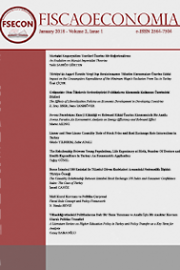Jevons Paradoksu: Enerji Etkinliği ve Rebound Etkisi Üzerine Ekonometrik Bir Analiz
Jevons Paradox:An Econometric Analysis on Energy Efficiency and Rebound Effect
Author(s): Ömer Yılmaz, Haktan Sevinç, Merter AkinciSubject(s): National Economy, Energy and Environmental Studies, Evaluation research
Published by: Ahmet Arif Eren
Keywords: Jevons Paradox; Rebound Effect; Energy Efficiency;
Summary/Abstract: In this study, the effects of energy efficiency, rebound effect, on energy production, consumption, saving, import as well as inflation and current account deficit are examined using time series analysis in the period of 1967-2015 in Turkish economy. Firstly, in order to determine the stationary level of the variables ADF and PP unit root tests are used and the results show that all of the variables considered within the model are stationary at the first difference level. Second, the finding of Johansen-Juselius cointegration analyze reveals the existence of long-run relationships among variables, and Granger causality analysis reflects at least the validity of one-way causal links among variables. The findings of the VEC analysis point out that the Jevons Paradox or rebound effect is valid in the Turkish economy, which means that energy consumption rises as energy efficiency and production increases. In addition, the findings show that depending on increasing energy consumption energy import level rises and therefore current account deficit and inflation begin to deteriorate, also.
Journal: Fiscaoeconomia
- Issue Year: 2/2018
- Issue No: 1
- Page Range: 77-98
- Page Count: 22
- Language: Turkish

